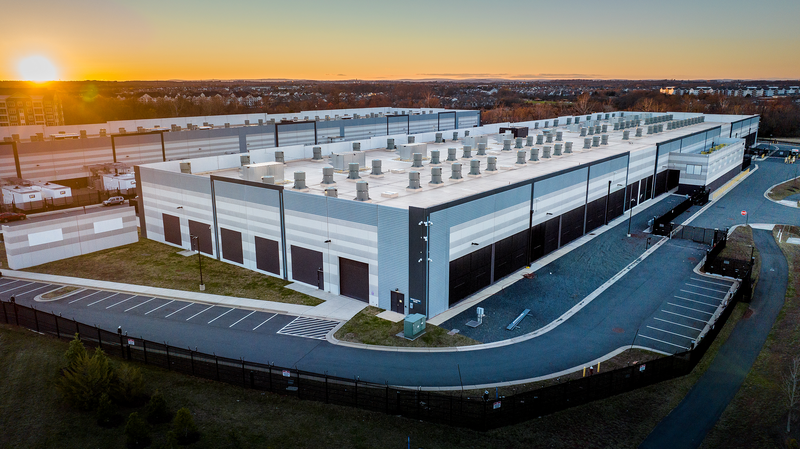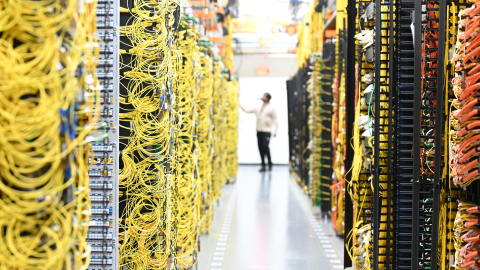Amazon Web Services (AWS) today announced plans to invest €15.7 billion in Spain in its AWS Europe (Spain) Region, which will support an estimated 17,500 full-time equivalent jobs in local businesses on an annual average basis, and will contribute an estimated €21.6 billion to Spain’s gross domestic product (GDP) through to 2033.
The Minister for Digital Transformation and the Public Service, José Luis Escrivá, highlighted the importance of the investment, saying: “Amazon Web Services' decision to choose Spain places us at the forefront of technology innovation and Artificial Intelligence in Europe and confirms, once again, Spain’s ability to support technology talent and quality jobs in the long term. This new commitment by AWS spotlights our country’s attractiveness as a strategic tech hub in southern Europe, and the connectivity, climate and energy conditions that make us an attractive location to the world’s most innovative companies. That AWS data centers are 100% powered with renewable energy is absolutely aligned with the AI Government Strategy approved just few days ago."
AWS will expand its cloud infrastructure in Aragón with the support of the regional government, and 40% of the estimated 6,800 jobs will be located in Aragón. Jobs will be supported across industries including construction, facilities maintenance, engineering, and telecommunications. In addition to jobs, over half (€12.9 billion) of the anticipated GDP contribution will come from the Aragón region.
AWS’ long-term commitment to Aragón is a key part of the regional government’s strategy to become a leading technology hub nationally and within Europe, and was welcomed at an official event hosted by the regional government.
“Since its arrival in Aragón, AWS has turned the region's potential for attracting technological investments into a reality,” said Jorge Azcón, president of the regional government in Aragón. “AWS is a global company, but its involvement in the local ecosystem and the communities in which it operates have made it an 'Aragonese' company. The investment we are announcing today is unique in the history of technology investments in our community and in Spain. It will definitively place Aragón on the map as a center of innovation and the cloud economy in Europe.”
Today’s €15.7 billion planned investment announcement increases AWS’s original plan, announced in 2021, to invest €2.5 billion in Spain and support the creation of an estimated 1,300 jobs over ten years by a factor of six.
“We are committed to supporting Spain across multiple areas," said Suzana Curic, AWS Country Manager, Spain and Portugal. "Beyond direct investments and jobs supported, we plan to continue our partnerships with local schools and community initiatives to support talent development, community education programs, and sustainability initiatives. We will match the electricity used in our data centers in Aragón with 100% renewable sources, and continue to look for different ways to innovate and run our operations more efficiently and sustainably, giving resources back to the communities where we have a presence”.
Sustainability

As part of our global Climate Pledge to reach net-zero carbon emissions in all operations by 2040, AWS data centres in Aragón have been matching electricity used with 100% renewable energy since 2022. AWS is committed to being water positive before 2030 by returning more water to the community than it uses in its operations. We have collaborated on two water projects in Aragón with local partners. Using AWS cloud technology, the initiatives detect and reduce water loss through leaks in ageing pipework, and increase reused water flow to local farms.
"AWS has been a wonderful and committed partner in our efforts to promote sustainability in the region of Aragón. Its collaboration in planting 5,000 trees in the Bosque de los Zaragozanos initiative, and its support to make Zaragoza one of Europe’s carbon neutral cities has been outstanding,” said Eva González, Director of Sustainability Culture at ECODES.
Growing with partners and the community
AWS' investment will allow us to continue expanding to meet growing demand and continue to establish ourselves as a positive economic and social presence in Spain – and specifically in Aragón – supporting partners and suppliers to grow their businesses.
Levitec, a local Aragonese company specialising in electrical and air conditioning installations, helped to fit out AWS’ first data centres in Aragón, and has since grown to take on international clients. “The trust placed in us by AWS has been a key part of our transformation and internationalisation. It has helped us become an established name in the industry and to diversify and expand our client portfolio,” said Agustín Lalaguna, CEO at Levitec.
AWS is also committed to creating a positive social impact in the local communities where its data centres are located. Since 2022, it has launched two Economic Social Funds in Aragón, totaling €264,000, to support local projects related to Science, Technology, Engineering, Arts and Mathematics (STEAM) education, as well as employment, inclusion, and sustainability initiatives. These projects have helped more than 5,400 individuals in Aragón by improving digital skills, employability, and sustainability.

“AWS' commitment to the Aragón community has transcended from the business to the social sphere. The company’s continued involvement through financial aid, employee volunteering and social inclusion activities demonstrate how AWS has become another neighbour in the region. At Aspace, we are grateful for the collaboration and immensely excited about what the future holds,” said Mónica Iglesias, Managing Director of the ASPACE Zaragoza Foundation.
Investing in digital skills, training, and STEAM education
A recent study developed by independent consulting firm Strand Partners, commissioned by AWS, highlights that technologies like artificial intelligence (AI) and generative AI could potentially deliver a €55 billion economic injection to the Spanish economy by 2030. To do so, the country should resolve three critical issues: creating an environment for innovation; ensuring that companies of all sizes have access to the latest technologies; and closing the digital skills gap.
Last year, AWS launched the Think Big Space in Aragón, which aims to bring STEAM education to students in local schools and inspire them to pursue tech studies in the future. The project’s goal is to reach more than 50 local schools and 3,500 students aged between 10 and 16 during the first academic year.
AWS has also launched the Tech Alliance in Spain, bringing together a coalition of Spanish companies, including local partners and AWS customers, government agencies, and educational institutions, to address the technological skills gap in the curricula of technical schools and universities. The alliance aims to prepare students for entry-level technology careers, and connect them with potential employment opportunities among participating companies. Through these and other education and certification initiatives, AWS has trained more than 200,000 people in cloud skills in Spain since 2017, as part of its global commitment to train over 29 million people in cloud computing skills, and two million people in AI by 2025.
How the AWS region in Spain helps customers and society
The AWS Region in Spain supports the digital transformation of organisations across Spain and globally. Telefónica, BBVA Adif, IE, Insud Pharma, and the Spanish Red Cross are examples of local customers using the AWS region in Aragón. In addition, tens of thousands of customers trust AWS to power their infrastructure on the Iberian Peninsula, including more than 75% of the IBEX35, the Spanish stock market.
“Thanks to AWS technology, we can provide critical remote care services and fight unwanted loneliness for around 150,000 elderly and dependent people, as well as their families and caregivers, throughout Spain,” said Sandra Pedraza, CIO at Spanish Red Cross. "The most important thing for us is that AWS provides us a resilient and highly available infrastructure, necessary to be able to support people, as well as the ability to optimize the resources necessary to be more sustainable and innovate in the provision of services. In short, we have created a cloud full of humanitarian technology.”













